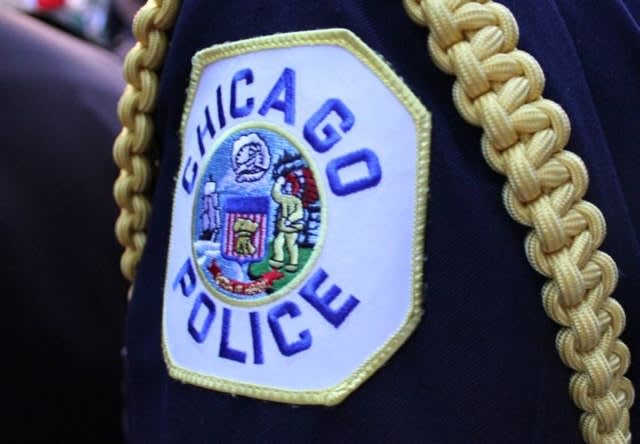Chicago has always been a violent city. When I grew up there in the 1950s and 1960s, you had neighborhood gangs like the Deacons and 58th Street. Then when the Blackstone Rangers were formed in 1959, a new episode of gang violence began.
I remember Englewood being a violent neighborhood growing up. And I remember taking the "El" train to 63rd and Halsted Street. I remember going to "lounges" ("clubs") between 75th and 79th and Halsted. There were places like The Green Bunny and The Skyway Lounge, and you could party without problems. Today that is not the norm.
I remember working an off-duty security job in the mid-1970s for a sorority party on 79th and Halsted and some Disciples wanted to come inside. I knew some of them from the neighborhood, and they promised me they would behave. About 30 minutes after I let them in they left. I had gone downstairs to my car, and came back up, when two of the Disciples walked up to me, and handed me my wallet, which I had somehow dropped by the car. My badge, ID, and money were still intact. Today that is not going to happen.
I guess what I am getting at, is I don't know my hometown anymore. I remember when a promising basketball player named Ben Wilson was gunned down by Gangster Disciples in 1984. My partner, Ed Christian and I were assigned to assist the Chicago Police Department, and all of a sudden Chicago had a "gang problem." I've got new for you, Chicago has always had a gang problem, and it’s not just Al Capone and Sam Giancana and the "Outfit."
Now Chicago's homicide rate is out of control. Since when has it been under control? Yes, the Chicago street gangs are wreaking havoc. They have always "wreaked havoc." This is not about "old school" gangsters coming out of prison and trying to re-establish themselves. It's about the youngsters having no respect for anyone.
They are many reasons why this has happened. Consider the following:
• Former mayor Richard M. Daley tore down all of the high-rise housing developments known as the "jets." There were approximately 91 of these projects throughout the city, and the Gangster Disciples and Vice Lords controlled 75% of them. The poor people who lived in them have been displaced, and some of them are hardcore gang members.
So the gangs have gone to other neighborhoods. Some of these neighborhoods were controlled by rival gangs, some were neutral. Either way, the displaced gang members from the high rises have tried to take over and that's led to violence.
• Federal law enforcement has done an outstanding job in convicting gang leaders, who before their incarceration controlled their soldiers and demanded respect. There is no respect with the younger generation of gang members today. You don’t see the discipline of past years.
• Traditionally neutral areas that had little or no gang activity in the past now have it.
• Mexican Drug Trafficking Organizations and Los Angeles-based gangs have set up inside Chicago and in the suburbs. MS-13, Crips, Bloods, and Sureños have a foothold in the area, and Chicago is a major distribution point for Mexican cartels.
• Guns have been purchased or stolen in the South by Chicago street gangs. It is very easy to buy weapons through straw purchases in the South. There has also been an increase in burglaries of gun stores in the South. These break-ins have been orchestrated by Chicago street gang members.
There is absolutely no regard for life among the warring gangs of the Windy City. In recent weeks numerous innocent victims, some six years old or younger, have been killed by stray bullets. A teenage girl sitting on her porch struck by a bullet and killed.
People ask me all the time if I know a solution to the problems in Chicago. For the record, I don't.
People also say to me, "Well you don't live there anymore. So what do you know?" That may be true, but I go back three times a year; I also have friends and former co-workers who live there, and I worry about their safety.
A fraternity brother of mine recently told me about some young Gangster Disciples trying to take his cell phone at an "El" train stop. He fought them and they ran. A Chicago officer told him, "You are lucky they didn't kill you." He grew up in that very same neighborhood, and thought nothing of protecting himself.
Chicago is my hometown. It will always be a part of me. But the city is in trouble, and it will probably get worse before it gets better.
Tony Avendorph retired in 2009 after 40 years in law enforcement, serving with the Illinois Department of Corrections, Los Angeles County Sheriff's Department, and Prince George's County (Md.) Police Department.












